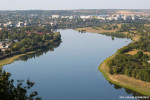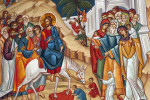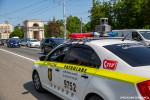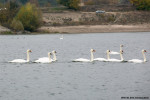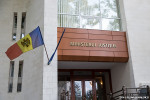Answers about April 7 can be obtained only from law enforcement bodies’ reports, opinions
The Prosecutor’s Office was the weak chain ring as it delayed the process of collecting evidence and identifying the persons who resorted to use of torture and to inhuman and degrading treatment, with the prosecutors showing total indifference. The statement was made by the [executive director of the Helsinki Committee for Human Rights of Moldova Teo Carnat] in an interview for the Agency about the results achieved last year in investigating the April 2009 events.
{The April 7 case should have been a priority for the authorities and prosecution bodies in 2010, but the people have not yet received answers to such questions as: who organized those events and who should bear responsibility?}
Teo Carnat believes that owing to the political instability in Moldova, the Prosecutor’s Office waited for the early elections to take place so as to see what alliance is formed after them. “The parliamentary commission for elucidating the April 2009 events was to give a political verdict and say who was to blame for those events, but it stated only that it had not been a coup. It should have said who staged those events and who should have maintained public order so that the then ruling party was condemned. They did not do it and this is a minus for the Nagacevschi Commission,” said Teo Carnat.
Vanu Jereghi, [director of the Moldovan Institute for Human Rights,] considers the Ministry of the Interior should have been involved in investigating the April 7 events. “There wasn’t political will. If it was, it did not come from those who had the levers of power. It is rather improbable that this matter will be a priority for the authorities in 2011,” he stated.
The parliamentary commission for inquiry into the April 2009 events started work in October 2009 and presented its report in May 2010 though it should have done it within 60 days of the constitution. The [Commission’s head, former Liberal-Democrat MP Vitalie Nagacevschi], stated for Info-Prim Neo that he and the members of the commission did everything possible to identify answers to certain questions, using the powers that they had in accordance with the legislation. “Our only omission was the breakdown of a number of websites, but it was a technical omission. This topic was discussed insufficiency. More attention was devoted to it after the report was finished. It wasn’t done on purpose,” said Vitalie Nagacevschi.
“The commission worked, but it was sometimes hindered in its work by the Ministry of the Interior, which did not provide all the materials and information asked for,” Vitalie Nagacevschi said, adding separate officials were to blame for this, not the Ministry’s administration.
Vitalie Nagacevschi believes the truth about April 7 was to be established not by the commission, but by the Ministry of the Interior, the Prosecutor’s Office and the Security and Information Service. “The report of the Nagacevschi Commission was a legal one. The commission’s work did not substitute the work of the Prosecutor’s Office, the prosecution bodies and courts,” Nagacevschi stressed.
The former lawmaker said that after the report was rendered in Parliament, a decision was taken whereby the law enforcement bodies were obliged to present a report on those events to the legislative body within a month. “But the legislature was dissolved and the decision was not implemented. I hope the new Parliament will request the competent bodies to report on the investigation of the April 2009 events,” Vitalie Nagacevschi said.
[Former Communist MP Vladimir Turcan, who chaired the first state commission for investigating the April 7 events] that was set up late in April 2009 by a decree issued by the then President Vladimir Voronin, said he was dissatisfied with the way in which the Nagacevschi Commission conducted the investigations and with the work of the law enforcement bodies. “The law enforcement bodies did not identify the persons to blame and did not give answers to a lot of questions. We all expected that the organizers and instigators of those events will become known, but the report did not provide answers,” said Vladimir Turcanu.
The former lawmaker also said that the final report of the Nagacevschi Commission proposed examining the reports of the Ministry of the Interior, the Prosecutor’s Office and the Security and Information Service and this should be done if we want to get answers.
According to the report produced by the Nagacevschi Commission, the April 7, 2009 events did not represent a coup. The protests were determined by the problems existing in the country before the April 5 elections. The police did not intervene on time, the prosecutors and judges acted illegally, and there were identified no foreigners involved in those events. The commission’s report was approved only by the representatives of the Alliance for European Integration. The Communist lawmakers had a separate position. The Opposition accused the commission of being nonobjective and the ruling alliance of being involved in the organization of the violent protests.



